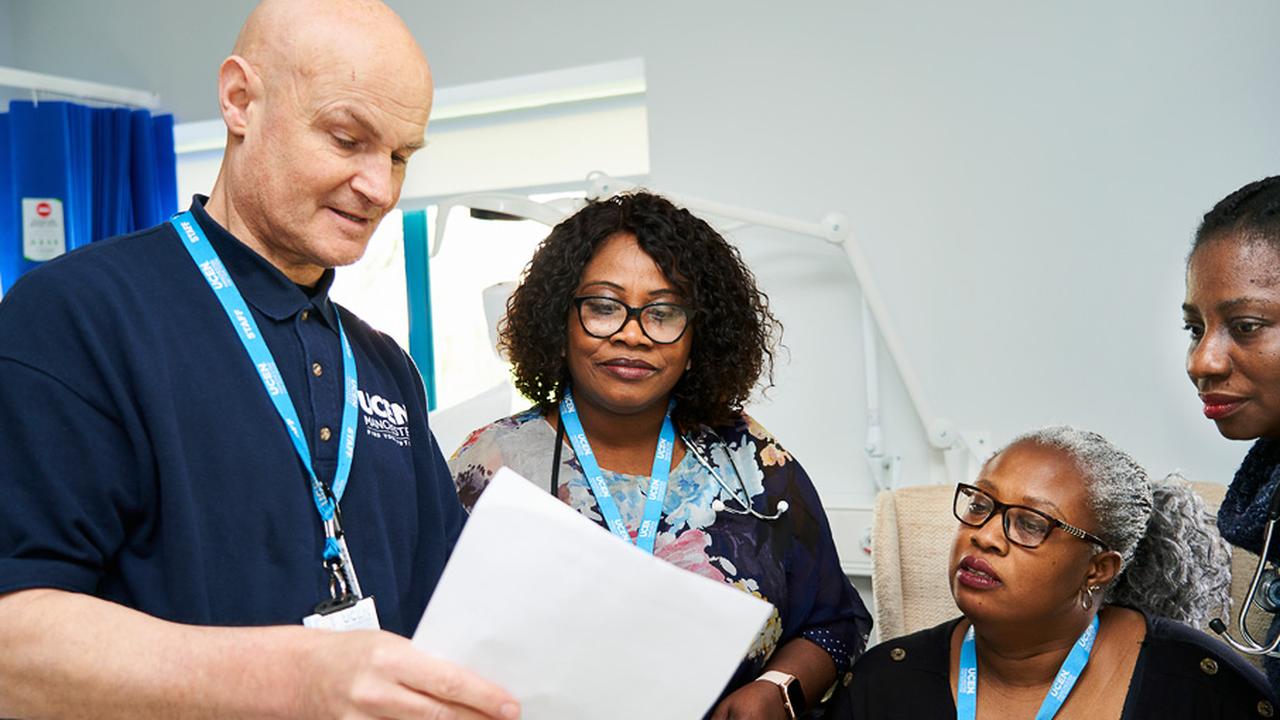Four myths and misconceptions about studying Health and Social Care at UCEN Manchester

Adam Sleeman, Programme Leader at UCEN Manchester, has addressed four common myths and misconceptions about UCEN Manchester’s Health and Social Care courses, covering everything from the contents of the programmes on offer to the knowledge and experience of our tutors and lecturers.
All of our Health and Social Care courses are taught at our Openshaw Campus, and we welcome applications from students wishing to study with us. Many of our applicants want to study alongside their full-time jobs or caring responsibilities, and the team pride themselves on the individualised support they offer to learners.
Here’s what Adam Sleeman had to say about four of the most common misconceptions and myths about studying Health and Social Care.
1. Are the courses only orientated towards people who want to work in the National Healthcare Service (NHS)?
No, at UCEN Manchester, we think it’s really important that our curriculum content gives learners the core knowledge and skills that will enable them to work flexibly across the sector, meet the holistic needs of individuals, and prepare them for the new roles that are emerging all the time in areas such as social prescribing.
The sector is very dynamic, fluid, and changing all the time. There is now a significant private, voluntary and independent sector that operates alongside statutory provisions such as the NHS and Local Authorities. We embrace and reflect the new and emerging knowledge and skills required for the diverse workforce in our curriculum design and delivery.
To return to the original question, our graduates have progressed onto Masters programmes in Social Work, Research, Public Health and Nursing. Others have become Paramedics, Nursing Associates, Managers and Community Link Officers.
2. Are the courses all theory based?
This is another misconception! Learners are required to do 225 hours of work experience per year for our Higher National Diploma programmes. UCEN Manchester has a work placement officer who supports learners to secure work placements with a range of care providers, including the NHS.
UCEN Manchester now has state-of-the-art facilities and equipment, including a mock hospital ward, enabling students to develop their practical skills in a simulated clinical environment.
Furthermore, we design our curriculum delivery and assessments to enable learners to synergise theory and practice effectively to maximise their progression and employability opportunities.
3. Do learners have to study with UCEN Manchester for three years to obtain a recognised qualification?
We have a flexible offer that has proved very popular with our learners. Some learners choose to do a one year Higher National Certificate, others to do a two year HND (now Higher Technical). Many more complete a top-up degree (BA Hons Integrated Health and Social Care) and progress onto Masters programmes following this.
4. Are tutors and lecturers up to date with the evolving Health and Social Care industry?
This is a common question for educators in rapidly changing sectors like health and social care, where new procedures, policies, practices, and technologies are constantly being introduced.
The short answer is, yes, we are up to date and up to speed on what’s happening in the health and social care sector.
From my experience, I’m a registered nurse, and I’ve worked in the NHS and Local Authority in different roles (including Registered Manager, Principal Commissioning Officer, Staff Nurse and Senior Learning and Development Officer for Safeguarding) for over 20 years.
I’m required to go through revalidation every three years to ensure that my nursing registration remains current and valid, and to do that, I need to demonstrate that I’m continually updating my skills and knowledge.
Find out more information about Health and Social Care courses at UCEN Manchester, get in contact via 03333 222 444 or online.

